Padlocked gates, desperate victims: inside suspended NDIS firm’s demise
Co-founded by a big-talking former bankrupt at the centre of prior consumer warnings, Zaffar Khan’s Cocoon SDA Care is everything the public does not need associated with the $48.5bn-a-year scheme.

Three women with complex disabilities, each requiring around-the-clock care, went out one morning in late 2023 for their regular hydrotherapy session with their team of support workers.
When they arrived back to their single-level, purpose-built and specially-appointed house just hours later, they found they no longer had a home.
“We’ve returned from swimming in the morning to find that the gates were chained up with a padlock,” says disability worker Trudi Noble. “All of our three clients were left out on the footpath, pretty much, with nowhere to go.”
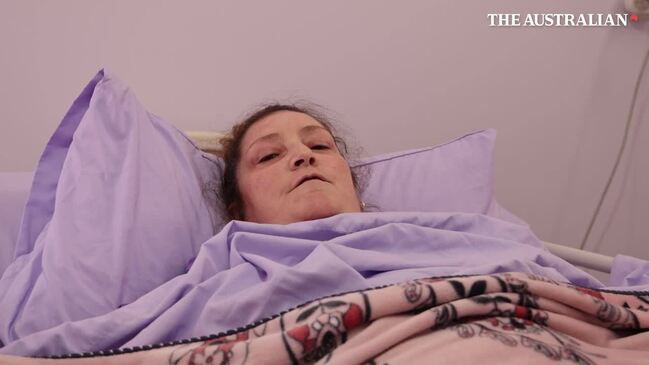
Disturbing mismanagement by a registered NDIS provider, Cocoon SDA Care, had left the women on the street, and they are far from the only victims.
This week federal authorities suspended Cocoon’s parent company, Horizon Solsolutions Australia, from providing NDIS services, as a crisis of epic proportions engulfed the firm.
Co-founded and promoted by a big-talking former bankrupt who has been at the centre of prior consumer warnings, Zaffar Khan, Cocoon is everything the public does not need associated with the $48.5bn-a-year National Disability Insurance Scheme.
The company’s shonky practices, and a delayed response by authorities to years of red flags and tip-offs, can be revealed after Cocoon’s past and present managers, frontline support workers, NDIS participants, investors and independent investigators spoke to The Australian.
They are blowing the whistle and leaking confidential internal documents, sometimes at significant personal risk, determined to expose the real goings-on at a firm that has been promoted as one of the fastest growing and “best places to work” in the country.
In the shocking case of the three women kicked out of their home, their trip had taken them only a 10-minute drive away to the hydrotherapy pool of the Fleurieu Aquatic Centre at Victor Harbour south of Adelaide. While they were out, the home’s owners repossessed it. They had been forced to take the extreme measure because Cocoon was refusing to pay rent, sources told The Australian.
NDIS under the microscope

NDIS firm sanctioned 18 months before suspension
NDIS participants found themselves locked out of their homes after Cocoon SDA Care became embroiled in a rent dispute, before turmoil resulted in the provider’s suspension this week | VIDEO

NDIS firm’s secret bonuses exposed
NDIS provider Cocoon SDA Care offered staff secret extra bonuses for signing up clients with significant disabilities, in a program condemned for creating an incentive to pressure those needing support to act against their own best interests.

Firm at centre of 32 NDIS tip-offs
Cocoon SDA Care has been the subject of 32 tip-offs over more than four years, and authorities are now concerned it may have been claiming for services that were never provided.

Unpaid staff sound alarm at NDIS firm
Troubled NDIS firm Cocoon SDA Care’s co-founder has received plaudits on social media for donation to a blind sports team, as a leaked email alleges shocking conduct in the firm’s Indian call centre.

Disability provider’s practices exposed
NDIS provider Cocoon SDA Care, co-founded by a former bankrupt, charged for services never provided and stalled on repaying. It left a man with disabilities confined to his home, whistleblowers say.

Broker ‘swindled NDIS clients out of $700,000’
A Sydney mortgage broker alleged to have swindled more than $700,000 from unsuspecting clients through the National Disability Insurance Scheme may face further charges, with police confirming additional alleged victims have come forward.

Court orders handover of suitcase full of cash seized from NDIS developer
When police raided the house of failed NDIS developer David McWilliams, they found a suitcase containing $112k in ‘casino winnings’. Now it’s been handed to ALAMMC group’s receiver.
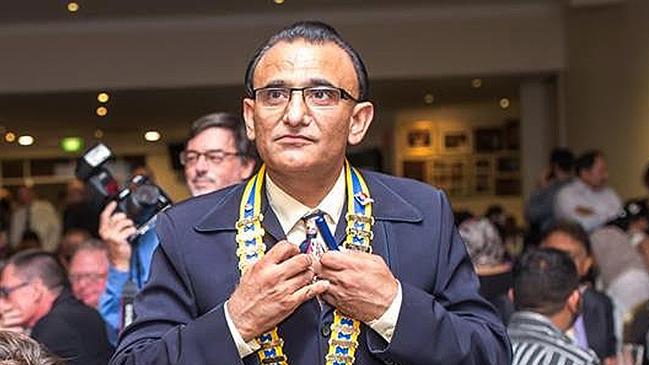
Strife for NDIS provider co-founded by former bankrupt businessman
A disability care business servicing some of the most vulnerable people in Australia is in turmoil, staff walk out, as it faces a federal investigation into taxpayer funding.
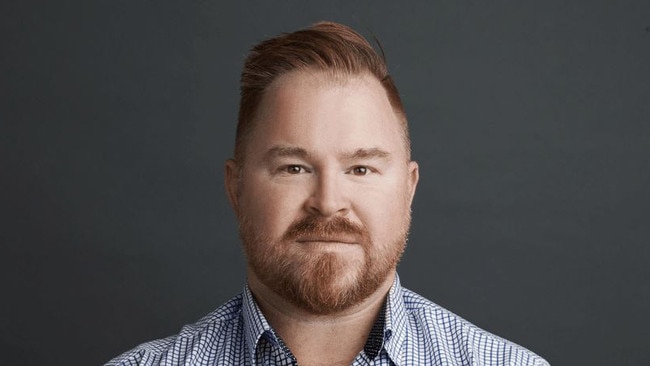
The brokers who made millions from bogus NDIS projects
Dodgy NDIS housing developers spent millions living the high life before running afoul of regulators. But court documents show brokers also made a motza along the way. Here’s how it worked.
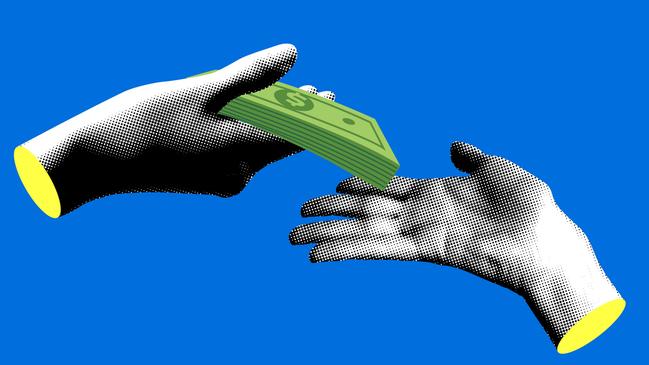
Our welfare addiction is killing Australia
It’s self-evidently a good thing to help genuinely disabled people. Australians don’t begrudge that. But the NDIS is perhaps the worst designed public policy initiative in Australian history.
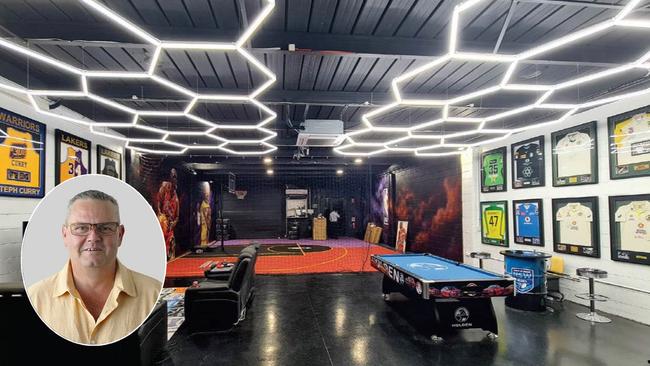
NDIS housing funds ‘blown on cars, casino, crypto’
A receivers’ report into David McWilliams’ ALAMMC Developments paints a damning picture of the wild west of NDIS housing investment, where dodgy developers have been allowed to roam free and prey on investors.
One of the women, in her 30s, is non-verbal with cerebral palsy and a severe intellectual disability.
Another, in her 60s, has multiple sclerosis and short-term memory loss and struggled to grasp what was happening.
The third woman, in her 50s, has an acquired brain injury from a car accident but was fully aware of what was going on.
They were living in a new abode, built to stringent government codes and fitted with everything they needed for their care.
Tracked down by The Australian this week, Noble said she had never experienced anything like the lockout. “Two of the ladies aren’t able to walk. It was horrific for those ladies to come home and not have anywhere to go. I was beside myself. You just can’t go into a normal home with them, with their needs, their lifters and things like that,” she said.
The property’s owners, literally “mum and dad” investors, arranged temporary accommodation at nearby Mount Compass and were deeply apologetic, Noble says. “It wasn’t set up for people with disabilities,” she said of the temporary home.
“We made it work. We had to make it work because there was nowhere else to go.”
The home’s owners felt they had no other choice after a painful and protracted dispute with Khan and Cocoon. “They’re good people, they just did what they had to do,” Noble says. That battle is still playing out in South Australia’s Supreme Court, with the couple suing Khan and parent company Horizon, and then being countersued, court filings show.
Noble was a frontline support worker employed by Cocoon since it started in South Australia in 2020. She left the company over the lockout and moved to another firm that took charge of caring for the three women, who under the care of the new provider eventually moved back into the home they had been locked out of.
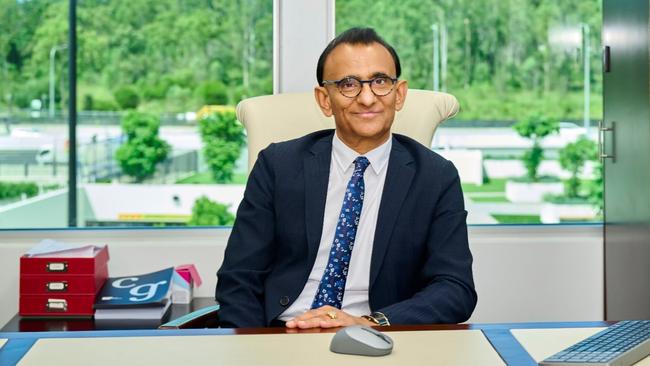
Parent company Horizon was fined more than $50,000 by national watchdog the NDIS Quality and Safeguards Commission in November 2023 over its incompetent handling of the women’s housing. But it was permitted to continue operating, despite a raft of other serious concerns raised about Cocoon and associated companies, before the lockout and since.
This week in the Federal Court it was revealed 32 broad-ranging tip-offs were made to authorities about parent company Horizon from late November 2020 to early February this year.
Allegations included that the company was overusing and prematurely exhausting the funding in NDIS plans, charging for services never provided, or overcharging for services that were provided, and hiring unqualified staff and underpaying them. In other words, working the system to the company’s financial advantage, and to the detriment of taxpayers and those it was caring for.
There was even an allegation the company continued charging a support service fee after an NDIS client’s death, though the Federal Court heard there could be reasons this was permitted.
Then there was the damning independent auditor’s report attached to Horizon’s 2024 financial statement. It detailed the company’s almost $10m debt to the tax office, and how it was issued a bankruptcy notice last year, only to be pulled out of the fire when the ATO agreed to a payment plan. Laying bare the company’s shambolic operations and record keeping, auditors Trigons Business Advisory openly warned that there was a risk errors and fraud were going undetected.
So diabolic was the situation that the auditor couldn’t be satisfied spending on things such as travel and entertainment was solely related to business operations. “Inadequate documentation, incomplete disclosures, unsupported entries, and weak internal controls affected our ability to verify the accuracy and completeness of recorded amounts and disclosures,” the report stated.
This from a firm that took more than $53m of public money from the NDIS in 2024, and more than $47m in 2023, according to the latest financial report. Interestingly, company management said “some employees who left the company may have engaged in `overseeing and overclaiming’.”
The uppercut delivered squarely to the jaw of management in the auditor’s report somehow did not deliver a knockout blow and the business kept drawing in more taxpayer funding.
By then, though, federal authorities were on the case.
Karen McDonald, director of the serious and complex non-compliance section in the National Disability Insurance Agency’s fraud branch, had seen enough to believe the company warranted a major investigation.
One has been ongoing since October 2024, and is the largest case of its kind currently underway in the NDIA, the Federal Court was told this week.
“There is a potential for fraud. We haven’t come to a conclusion in this case,” Ms McDonald said.
In March, a separate NDIA team started manually reviewing all of Horizon’s claims for NDIS funding, putting the brakes on hard on their revenue. The company stopped paying staff, including frontline workers, many of whom went on strike or quit.
Horizon’s financial problems clearly go back a lot further, with staff discovering superannuation payments missing since last year. Unions and the Fair Work Commission are involved.
Meanwhile, the NDIS commission has been doing its own investigations and said on Wednesday it was suspending Horizon’s registration for 30 days after recent site visits raised serious safety concerns. Managers hadn’t informed staff before the news broke. “I’ve just seen a report in The Australian stating that Cocoon SDA Care will lose its registration. Can you please confirm if this is accurate,” a community engagement manager wrote in an all-staff email.
The company has since been offloading the care of its clients to other providers.

Sharyn Snowball is one of those. Over a period of six months, she had a run of the worst luck: A car accident in 2019 that caused serious internal injuries, followed by breast cancer and a diagnosis of stiff person syndrome.
Celine Dion has the same auto-immune neurological disorder. In Snowball’s case it means she needs help getting into her wheelchair and showering.
On Friday she was moved out of the home in Adelaide’s Salisbury East, where she has lived for the past 3½ years, to a new property in Davoren Park. She said she went for four days last week without a shower, which she usually had daily, but she’s mostly worried about Cocoon’s unpaid staff and has been unloading on the company on social media.
“People have got bills to pay, some people’s cars have broken down,” she said.
One manager said she had personally paid for gift cards for staff doing it tough. “At first there was confusion, then it went to anger for a long period of time and now it’s desperation. I’ve got grown men on the phone crying because they can’t afford to feed their children.”
Cocoon claimed on its website it had a 2400-strong workforce. Its 2024 financial report stated it had 1116 employees. That’s consistent with some of co-founder Khan’s boastful exaggeration that is now being identified.

One YouTube clip uploaded in January and discovered by The Australian this week claimed “Khan’s company is valued at $2bn”. Interviewed for the video, Khan made the extraordinary claim that from driving a taxi he built a business so big and successful it was the “largest in Australia” and that he was “second to the Minister of Transport”.
He sold the company to Macquarie Bank then moved to New Zealand to launch a copycat venture, and went broke, he said.
It was back to taxi driving for Khan, but it wasn’t long before he was in business again, unfortunately for those now bearing the brunt of Cocoon’s troubles.
Investors who spoke on condition of anonymity said Khan promised huge returns of more than $200,000 a year when enticing them to build NDIS housing that could then be used by Cocoon. Houses were built, but in at least some cases there were drastically reduced returns, or no clients at all.
It came after Khan was accused in 2015 in a civil case of swindling a Toowoomba couple, both doctors, of $1.1m they invested in a scheme they alleged had a “dishonest or fraudulent design”. That case was settled out of court.
Western Australia’s consumer watchdog also warned in 2007 that advertisements for a property scheme Khan was promoting made misleading and “extraordinary claims”. One associate said Khan spoke of his knowledge of Australian law and how it enabled him to push the boundaries.
“He used to say all the time that ‘I can get away with anything because I know the loopholes’,” the person said.
Boasting about his purported success was a deliberate strategy to instil confidence, but it sometimes caught Khan out, the person added. “He once said to someone ‘I own that island in Fiji’. And that person said, ‘you’re wrong, that island is owned by a Hollywood celebrity’.”
When former NT operations manager Andy Balfe quit in October 2024, his resignation letter offered some unsolicited feedback. The company was plagued by “bullying and intimidation, some mind boggling management decisions, terrible communication” and other “serious ethical and legal considerations”, he wrote in the letter, obtained by The Australian.
Mr Balfe confirmed Friday the company for a long time offered highly contentious staff incentives for signing up clients with significant disabilities, but added that when conditions were met bonuses often weren’t paid.
Jeramy Hope, chief executive of the Specialist Disability Accommodation Alliance industry group, said such programs piled pressure on people with disabilities to act against their own best interests.
A federal crackdown on NDIS fraud was driving disreputable operators out of the business, but more could be done, Hope said. Retail investors with self-managed superannuation funds being offered unrealistic returns is a common problem, he warned.
“There needs to be institutional investment. That security gives an element of safeguarding for people with disability,” he said.

Khan and Cocoon co-founder Muhammad Latif deny any wrongdoing, and have highlighted Federal Court evidence this week that there was so far no confirmed fraud. They want investigations wound up, so have asked the court to find the manual audit is unreasonable.
But the court was told a partial review suggested the firm wrongly claimed and was paid more than $246,000 for specialist disability accommodation.
Further anomalies have been put to the company, some relating to its claims it provided NDIS services to prisoners, the court heard.
Other concerns raised with The Australian include the security of highly sensitive data being stored in India and Pakistan on vulnerable people in the NDIS.
How Cocoon continued operating after all the red flags points to an overwhelmed scheme that is now playing catch-up to sort the bogus from the genuine.

